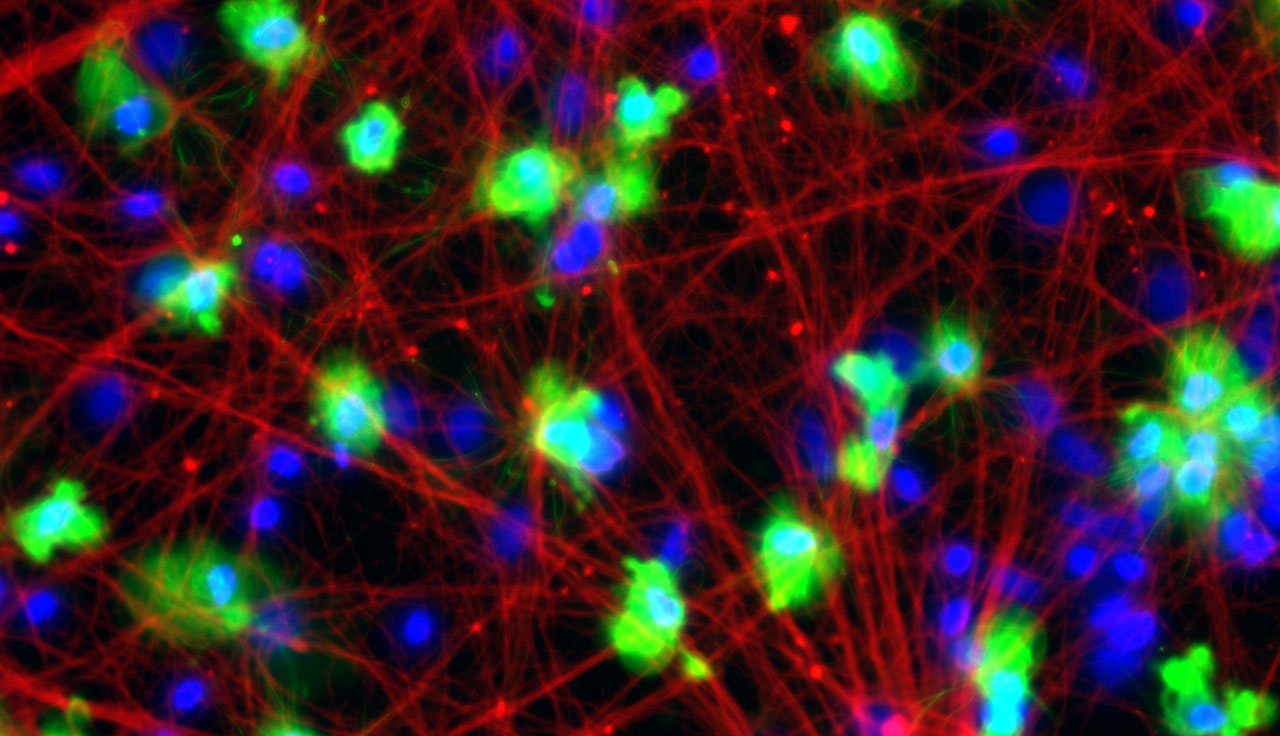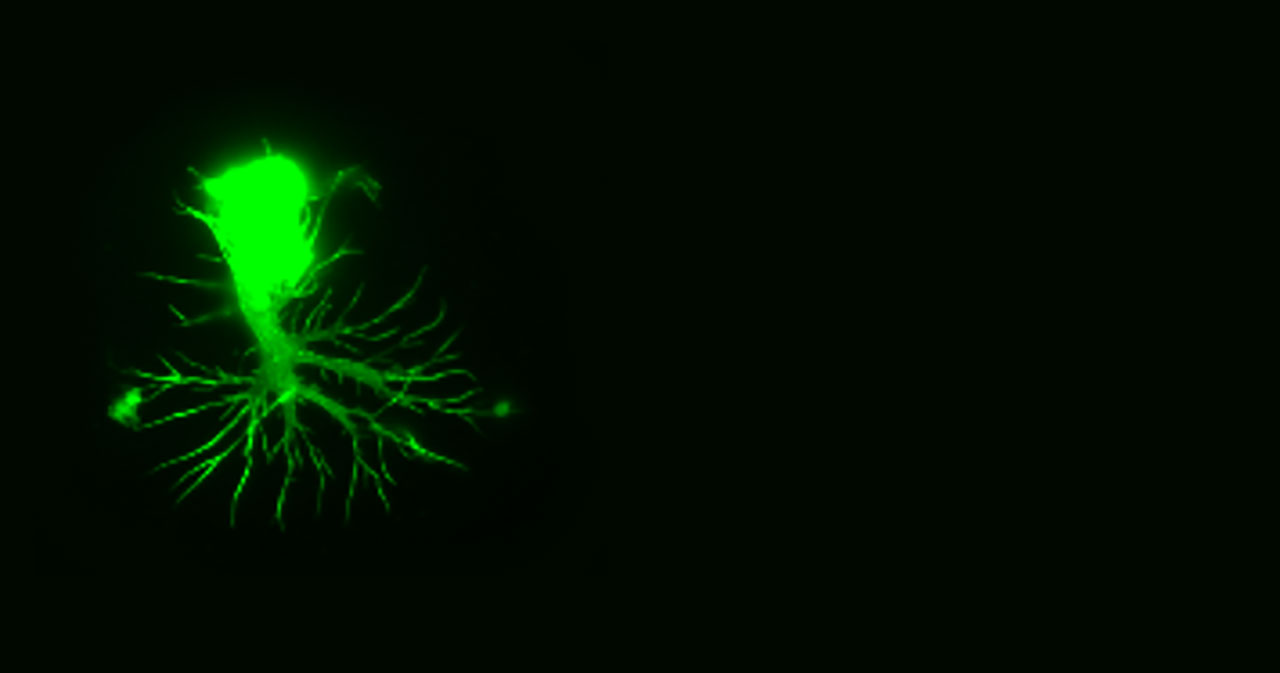Neurodegenerative diseases
The term neurodegeneration refers to the progressive loss of neuronal structures and functions, ultimately leading to cognitive disability and dementia. Alzheimer's disease is the most common form of dementia and affects millions of people worldwide. Currently, there are no curative therapies. Therefore, the search is on worldwide for new treatment strategies. Certain immune cells of the brain, which in their entirety are also called microglia, appear to be particularly interesting. Some variants in microglial genes significantly increase the risk of developing Alzheimer's disease (risk genes). Animal experiments are of little help in making progress here, because the microglia of common laboratory animals and of humans differ too much. Therefore, there is a great need for human disease models to study both neurodegenerative diseases and microglial biology in the context of healthy ageing. Recent technological advances in generating human microglia from induced pluripotent stem cells are finally making this cell type accessible for testing new therapies.
At ISAR Bioscience, we study and manipulate the functions of microglia and their communication with neurons and astrocytes. In this way, we hope to identify the mechanisms of disease development and find new therapeutic targets.






